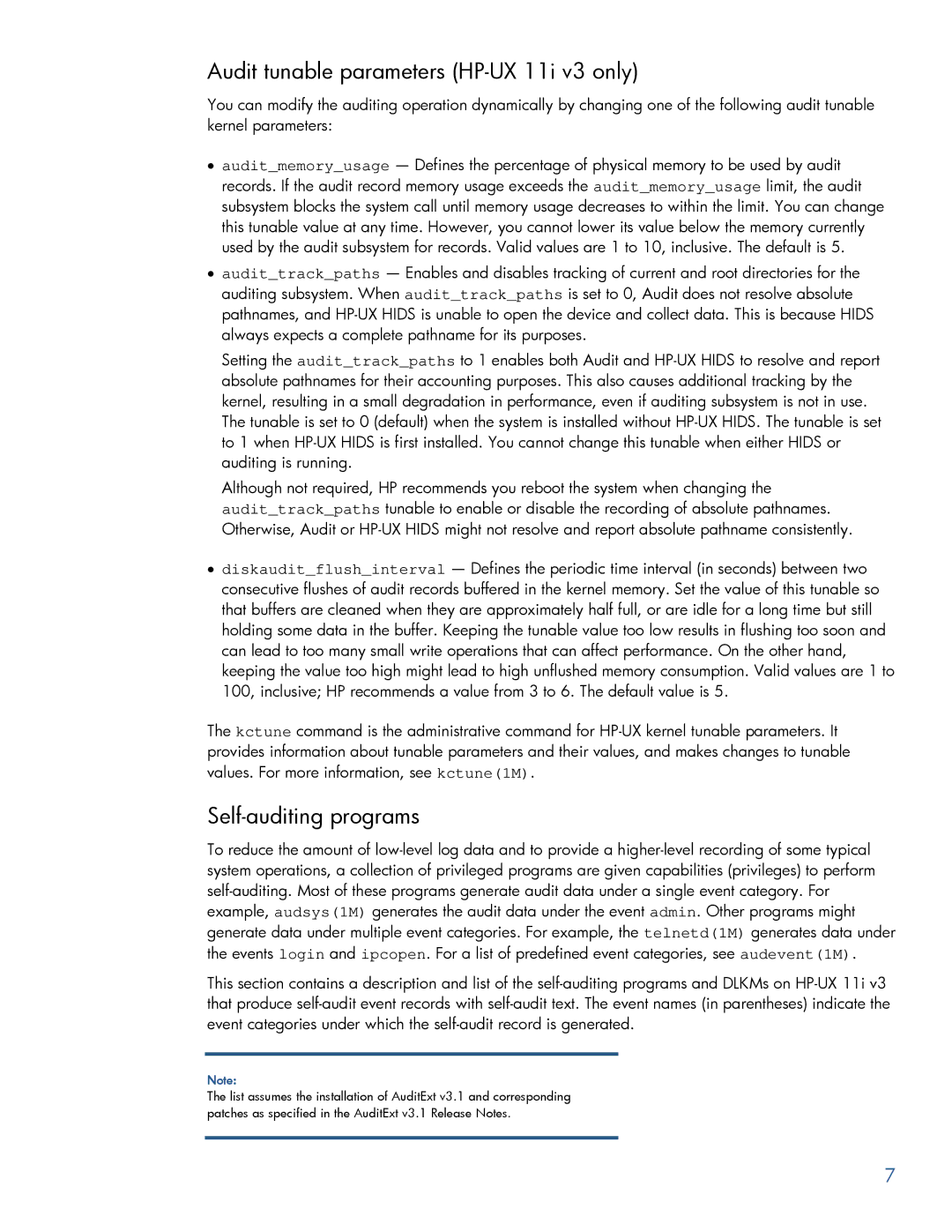
Audit tunable parameters (HP-UX 11i v3 only)
You can modify the auditing operation dynamically by changing one of the following audit tunable kernel parameters:
•audit_memory_usage — Defines the percentage of physical memory to be used by audit records. If the audit record memory usage exceeds the audit_memory_usage limit, the audit subsystem blocks the system call until memory usage decreases to within the limit. You can change this tunable value at any time. However, you cannot lower its value below the memory currently used by the audit subsystem for records. Valid values are 1 to 10, inclusive. The default is 5.
•audit_track_paths — Enables and disables tracking of current and root directories for the auditing subsystem. When audit_track_paths is set to 0, Audit does not resolve absolute pathnames, and
Setting the audit_track_paths to 1 enables both Audit and
Although not required, HP recommends you reboot the system when changing the
audit_track_paths tunable to enable or disable the recording of absolute pathnames. Otherwise, Audit or
•diskaudit_flush_interval — Defines the periodic time interval (in seconds) between two consecutive flushes of audit records buffered in the kernel memory. Set the value of this tunable so that buffers are cleaned when they are approximately half full, or are idle for a long time but still holding some data in the buffer. Keeping the tunable value too low results in flushing too soon and can lead to too many small write operations that can affect performance. On the other hand, keeping the value too high might lead to high unflushed memory consumption. Valid values are 1 to 100, inclusive; HP recommends a value from 3 to 6. The default value is 5.
The kctune command is the administrative command for
Self-auditing programs
To reduce the amount of
This section contains a description and list of the
Note:
The list assumes the installation of AuditExt v3.1 and corresponding patches as specified in the AuditExt v3.1 Release Notes.
7
